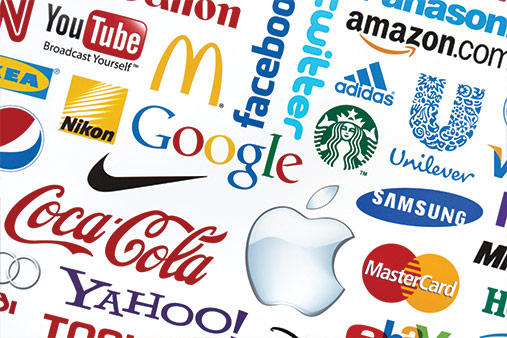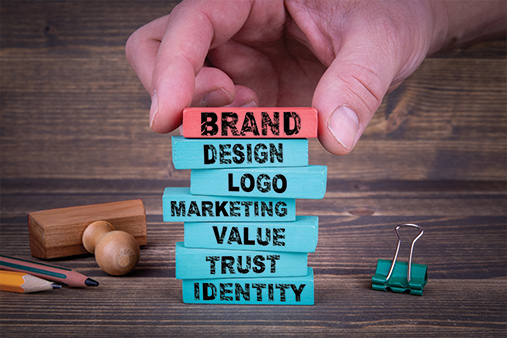Business Name Generator
How to Use the Business Name Generator
Step 1: Choose Your Business Name Keywords
Choosing the right keywords to enter into the generator will yield the best results.
Choose keywords that capture your product, service, or mission. Provide at least two keywords in the “Enter Keywords” box. For best results, try three or more.
Consider:
- Your business's main offerings
- The core values of your business
- The emotions you want your name to evoke
- Adjectives that might be associated with your business
- Synonyms
- Double meanings
Adding the city and state to the name generator is an option. Incorporating the city and state into your name can boost your local online presence on Google and Bing searches.
For more help choosing keywords, jump to the brainstorming section.
Step 2: Choose Business Name Ideas and Highlight Top Picks
Look for as many creative business names as you need – there’s no search limit. We recommend trying multiple keyword combinations as you generate business names.
Use the heart icon to tag your favorite business names.
Consider each name based on the following:
- How it aligns with your brand’s mission
- How easy it is to remember and pronounce
- Whether it’s catchy and unique
- How it will resonate with your target audience
Step 3: Select Your Business Name and Register the Domain
Browse your saved list and select the name that resonates most with you and your brand's mission. Remember, this name will represent your business's identity, so make sure to choose one that aligns with your vision and is brandable and marketable.
Then, ask yourself:
- Is the name simple?
- How does it sound when I say it out loud?
- Is the name easy to pronounce and spell, and does the acronym look okay?
- Is my name shorter rather than longer?
- Does the name convey my mission as a business?
- Did I avoid trends?
- Does my name contain obscure words?
- Is my name memorable?
Our generator will perform a domain availability check of the corresponding website address for each selected name. A domain name that is consistent with your business name can be crucial in establishing an online brand for your business.
The domain name for your business is just as crucial as the business name itself. You can future-proof your brand name by registering your website domain name immediately. And you’ll receive a hefty discount through our partnership with GoDaddy when you do.
Register Your Business Name
One of the best ways to register a business name is to form an LLC. Read our review of the best LLC services to learn more.
100 Creative Business Name Ideas
Starting a new business? Check out these business name ideas from TRUiC’s generator:
- AccuTax Solutions
- Ad Vantage Agency
- Al Dente Delights
- Amaize Mazing
- Artfinity Illustrations
- Auto Pro Exchange
- Bijou Grains
- Bijoutique
- Blissful Asanas
- Bloomburst Florist
- Breakfast Haven
- Brewology Lounge
- BuildRite Supplies
- BuzzHive Beekeeping
- Canvas Crafters
- Cheesy Savants
- Code Craft Academy
- Corporate Achievers Consulting
- Cuisine Courier
- Design Forge Studio
- Dogster Basics
- Dolce Wave
- Earthcraft Pottery
- Electrospect Lighting
- Epic Talent Solutions
- Evergreen Cultivations
- Fairytale Unions
- FinMind Advisors
- Frostbite Frozen Treats
- Gala Stage Productions
- Giftography
- Global Gourmet
- GlobeWise Excursions
- Grape Fusion Winery
- Henovation Farms
- Home Inspectomatic
- Hospiforce
- Inkfusion Studio
- Investipro Detectives
- Jolly Feast Essentials
- K9 Stride
- Lawnscape Experts
- LeapQuest Summer Camps
- Lexicheck Proofreading
- Lumiglass Productions
- Luxena Nail Studio
- Markitect Solutions
- Mystescape Rooms
- Nature Vista Landscaping
- Nifty Fixers
- Ocular Edge
- Orchard Elixir
- Paddle Pro Rentals
- Pastry Passion
- Patchwork Harvests
- Pedal Pitstop
- Petpalooza Park
- Pixel Fusion Designs
- Pixel Play Arcade Center
- Pixelloop Designs
- Plantucation
- Plateful Provisions
- PoolRevive Cleaners
- Pro Form Dance Studio
- Pro Grow Tutoring
- Pro-Lift Towing
- Pure Pressed Garments
- Pure Zen Spa Talent
- Repair Revive Auto
- Restful Stay Estate
- Roll Masters
- Second Shelf Used Books
- Secure Sentry
- Serenicare Hospice
- SignSure Notary
- Sinful Sweets
- Sparkling Sweepers
- Spicewind Traders
- Spinfinity Laundromat
- Spud Masters
- Sugar Crush Ice Cream Co.
- Super Fit Equip
- Sweet Harvest Cidery
- Tax Xcel Accountants
- Temponetics Agency
- Terra Haven Campgrounds
- The Costume Cauldron
- The Strand Studio
- Timberguild
- Tiny Treasures Books
- Tonal Tracks
- Toyland Emporium
- Velociwheels
- Vino Voyage Tours
- Vital Harvest Organics
- WanderQuest Trails
- Wise Drop Distributors
- Wondersprout Childcare
- Wood Wizards Carpentry
- Workspace Junction
Business Name Generator Best Practices and Tips
Personalize by Location and Optimize for Local SEO
It's essential to choose a good business name that is easily searchable and SEO-friendly.
When potential customers look for your products or services, you want your business to appear in their search results.
Selecting a name with relevant keywords and high searchability can boost your online visibility and brand awareness. Read our Beginner's Guide to SEO to learn more.
Local Search
If you enter your city and state into the field at the top of the results page, the generator will produce names tailored to your location, incorporating local identifiers to boost your visibility in local search results.
Verify Social Media Handle Availability
You’ll want to secure your name(s) across social media and the web. This guarantees consistent online branding.
Our Brand Name Generator automatically checks whether the domain is available for a website, but you must manually secure your social media handles on platforms like Facebook, Instagram, Twitter (X), LinkedIn, YouTube, and Meta's Threads.
Tips for searching social media handles:
- Start with a direct search. Input potential catchy business names on each platform's search bar.
- Embrace minor tweaks. It’s okay to modify the name slightly!
- Confirm cross-platform availability if already taken. This provides brand cohesiveness, laying multiple routes for customers to locate your brand.
- Prioritize uniformity. A consistent brand across platforms boosts recognition and fosters trust.
Consider Your Business's Geographic Reach
Whether you operate at a local, regional, or global level has a bearing on your choice of a name. For a local business, incorporating a city or landmark can resonate with your community. For international businesses, a name that is easy to pronounce across languages is crucial.
Choose a Name That Reflects Your Brand
Your business name should mirror your brand identity. It should embody your business's identity, ethos, and values. A tech company might opt for a modern, sleek name, while a history tour company might choose a name steeped in historical context.
Understand Your Market's Influence on Your Name
The demographics of your target market can guide your name choice. A younger, trendier audience might appreciate a quirky, creative name, while a more mature or professional audience might respond to something more traditional, practical, and relevant to their taste.
How to Name Your Business
If you’re ready to start a business, don’t let the naming process slow you down. Follow these steps to create a brandable business name:
Step 1. Brainstorm with a Business Name Generator
You’ll need to input good keywords to get the best results when using a business name generator. Consider these best practices for brainstorming keywords:
Analyze Your Business
- Mission & Vision: Understand your purpose and long-term goals.
- Offerings: Identify your main products or services.
- Unique Qualities: Highlight what differentiates your business from competitors.
Consider Your Target Audience
- Demographics: Consider your ideal customers' age, gender, location, etc.
- Preferences: Ponder their interests, values, and needs.
Evoke Emotion
- Determine the feeling you wish to instill in your audience when they hear your business name. For instance, trust, excitement, or warmth.
Explore Industry Terms
- List relevant jargon or phrases associated with your sector.
Think Locally (If Relevant)
- For businesses with a regional focus, use keywords related to your city, state, or region.
Gather Descriptive Adjectives
- Words that embody your business vibe, like "sustainable", "rapid", or "innovative".
Seek Inspiration from Competitors
- Observe naming patterns in your industry for ideas, ensuring you don’t imitate.
Experiment with Synonyms
- Expand your list by finding alternative words with similar meanings.
Set Parameters
- Decide if you want your name to be modern, classic, playful, etc., and choose keywords accordingly.
Step 2: Choose Your Business Name
First and foremost, your business name should align with your mission and resonate with your audience. When deciding on the right business name, here are some questions to ask:
- Is my name simple?
- How does the name sound when I say it out loud?
- Is the name easy to pronounce and spell, and does the acronym look okay?
- Is my business name shorter rather than longer?
- Did I include a geographic location in my name? Usually, you shouldn't.
- What do other people think of the name?
- How does the name compare to other business names in the industry?
- Does the name convey my mission as a business?
- Did I avoid trends?
- Does my name contain obscure words?
- Is my name too narrow or too literal?
- Is my name memorable?
Step 3. Register Your Business Name
You’ll need to secure your business name. There are two main ways to officially register your business name with the state:
- Register a “doing business as” (DBA) name
- Form an LLC (or corporation)
We suggest that most small businesses form an LLC. They're simple to set up and can shield your personal assets from specific business setbacks and legal claims.
LLC services charge as little as $29 to assist in registering an LLC. Read our review of the best LLC services to learn more.
You can consider registering a DBA name for businesses that are more of a hobby.
20 Company Name Ideas
You can use our business name generator to generate company names for your LLC, startup, or holding company. Here's a list of brandable company name ideas created with our tool:
- Real Core Holdings
- Techno Sprout
- Passion Fire Brews
- Open Leaf Wellness
- Eternia Real Holdings
- Nova Tech Solutions
- Urban Cycleflow
- Enterfuse Productions
- Zest Works
- SEO Nexus
- Rank One Consultants
- Equine Corps
- Verdant Earth Holdings
- Climate Force
- Lumeno Tech
- Cyclo Tech Ventures
- Solar Shift Tech
- Pixel Tap Solutions
- Grow Wise Consulting
- Seed Insights Consulting
Company Name Generator
Business Name Generator FAQ
What is a company name generator?
A company name generator is essentially the same as a business name generator. It's an online tool designed to assist entrepreneurs in creating potential names for their new businesses.
Is your Business Name Generator free?
Yes, TRUiC's Business Name Generator is free to use - as often as you'd like. When you do find a name you love, if you wish to purchase the domain matching the name, you can do that through GoDaddy for a fee (trust us, it's worth it).
Are there any rules when choosing a business name?
Your LLC name should be unique, not in use by another company in your state, and end with an LLC designator. Some words may require permission or not be allowed. See our state naming guidelines articles for more information.
Why is TRUiC's brand name generator better than the Shopify Business Name Generator?
TRUiC's generator stands out from the competition with its unlimited keyword input, domain name availability check, no email registration requirements, tagging favorite names functionality, and unlimited results list.





